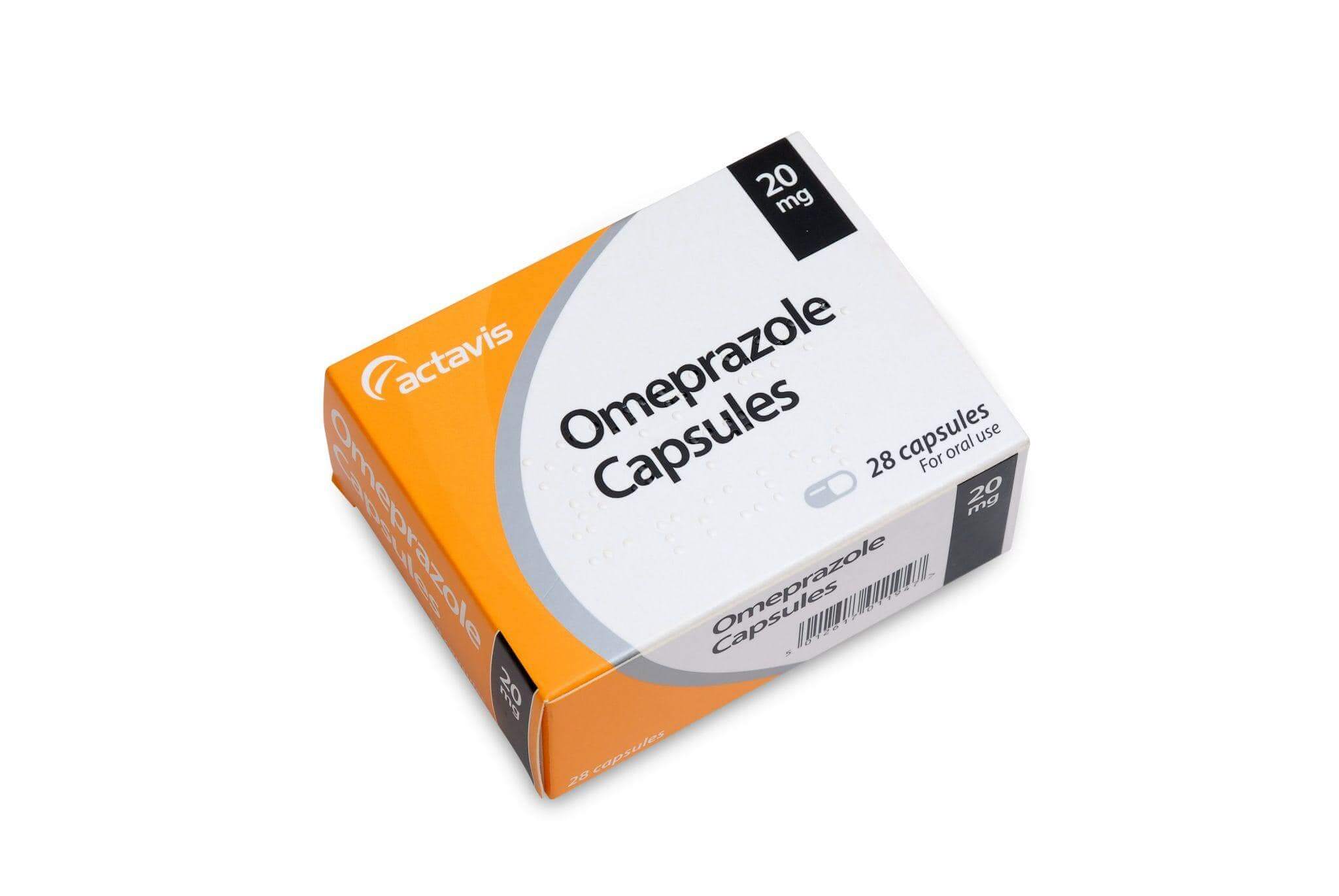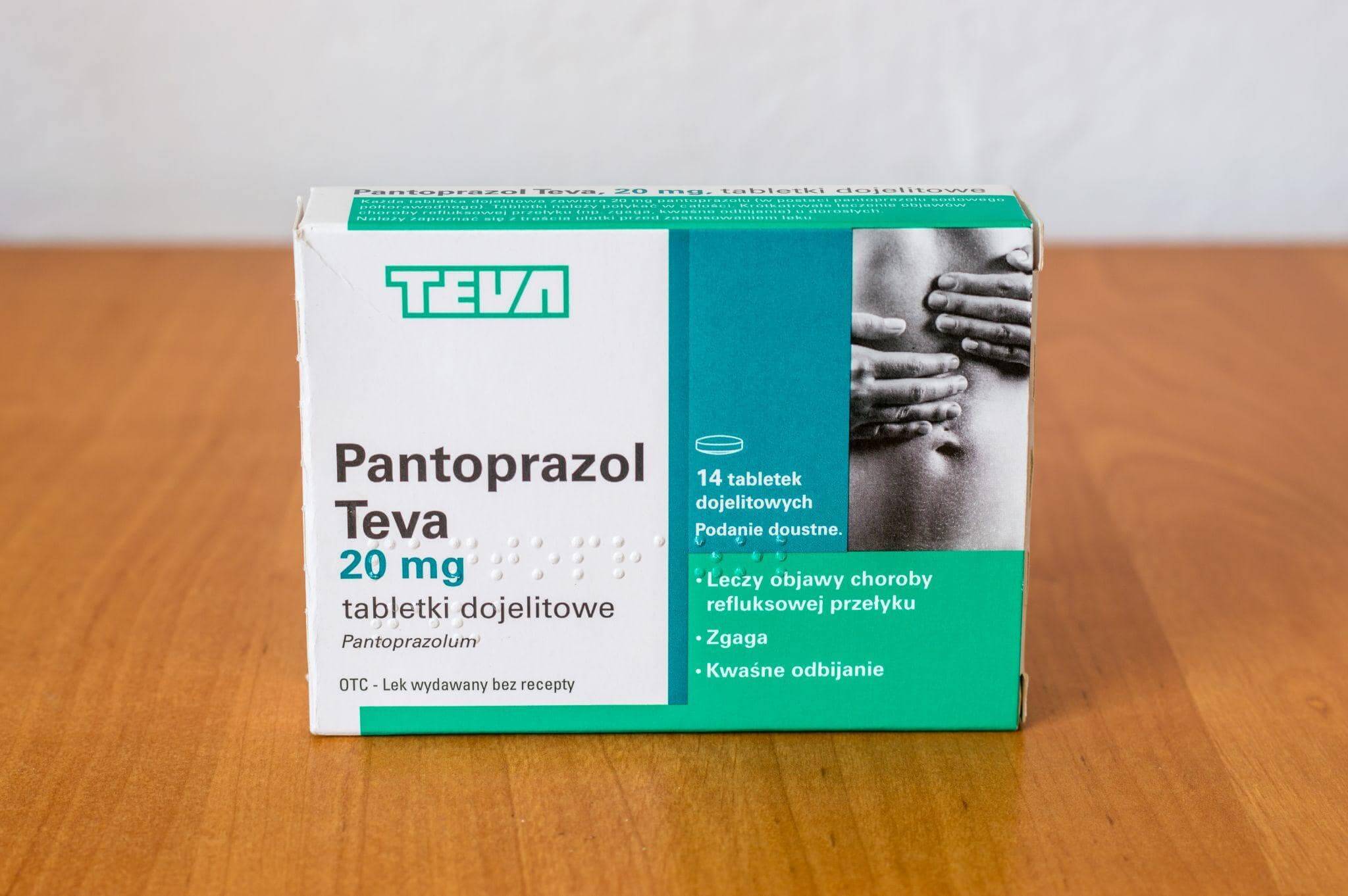Highlights
- Proton pump inhibitors reduce the amount of stomach acid the body produces, helping to improve acid reflux, and conditions caused by long-term stomach acid exposure, such as GERD, ulcers, and erosive esophagitis.
- Proton pump inhibitors include omeprazole, esomeprazole, lansoprazole, rabeprazole, pantoprazole, and dexlansoprazole.
- Drug side effects and interactions are similar for all of the PPIs, but there are some differences.
Proton pump inhibitors (PPIs) are a class of drugs that offer relief for stomach acid-related health issues. Common conditions include gastroesophageal reflux disease (GERD), stomach ulcers, certain types of gastritis, and damage to the esophagus caused by acid reflux. This drug is used to reduce the amount of stomach acid the body produces.
Read on to learn more about the different options for proton pump inhibitors and how to find the lowest prices on PPIs.
How Do Proton Pump Inhibitors Work?
Proton pump inhibitors work by blocking the production of stomach acid. This helps to relieve symptoms of acid reflux, GERD, ulcers, and other stomach acid-related conditions.
To do this, PPIs target specific enzymes called proton pumps, which play a role in the final step of stomach acid production. These enzymes are found in the cells of the stomach lining and promote the secretion of gastric acid.
Proton pump inhibitors limit this production and the burstiness of stomach acid. They’re ingested in an inactive form and are activated by the stomach’s acidic environment. The active form of the PPI enters the bloodstream and reaches the parietal cells in the stomach lining. They form a permanent connection with the proton pump enzyme, which is located on the surface of the parietal cells.
By binding to the proton pump, PPIs stop the secretion of hydrogen ions (or protons) into the stomach, blocking the final step of acid production. The proton pump is responsible for “pumping” the protons into the stomach lumen and is unable to do that when bound with the PPI.
As a result, the amount of stomach acid secreted, including any bursts or surges, is drastically reduced. This reduction helps to relieve symptoms and allows the stomach and esophagus to heal.

The Most Commonly Prescribed PPIs
Here’s a closer look at the most commonly prescribed proton pump inhibitors.
Omeprazole
Omeprazole was the first PPI to be introduced. Available as a liquid and a capsule, it’s approved to treat several stomach acid-related conditions, including:
- Ulcers in the stomach and small intestine
- GERD
- Erosive esophagitis (EE), or inflammation of the esophagus
- Zollinger-Ellison syndrome
The brand name for omeprazole is Prilosec. Omeprazole is also available over the counter (Prilosec OTC and Zegerid OTC) and can be used to treat heartburn, although doctors advise using these medications for frequent heartburn only and not for occasional indigestion or heartburn.

Warnings and Contraindications — Omeprazole
Omeprazole can cause kidney problems, so speak with your doctor if you are urinating less frequently or if there is blood in your urine. This drug may also cause diarrhea, which could be a sign of an infection. Let your doctor know immediately if you develop watery stools, fever, or stomach pain.
Omeprazole could cause a serious allergic reaction in patients taking antibiotics for certain conditions. Notify your doctor immediately if you develop trouble breathing or swallowing, swelling of the hands, face, or mouth, or itching.
You may also be more prone to bone breakage when taking omeprazole over the long term. This is more common in individuals over the age of 50, if you take high doses of the medication, or if you have been taking the medication for longer than one year.
Omeprazole is a delayed-release drug, so it’s important not to crush, chew, or break the tablets or capsules. Doing so could release all of the medication at once, which may increase your risk of experiencing side effects.
You should also let your doctor know if you have ever had liver disease, lupus, low magnesium, or osteoporosis, or if you are pregnant or breastfeeding.
Contraindications apply to patients who are taking dosage forms of rilpivirine and patients with a history of hypersensitivity to omeprazole or any excipients of its dosage form.
Taking this medication may mean having to stop the medication several days prior to certain medical tests or treatments. Make sure your doctor or dentist who treats you knows you are taking this medication.
Side Effects — Omeprazole
PPIs like omeprazole are generally safe for most people. However, like many medications, there can be side effects. Common side effects of omeprazole include:
- Headache
- Diarrhea
- Constipation
- Nausea
- Rash
- Cough
- Acid reflux
- Gas
- Dizziness
- Upper respiratory infection
- Stomach pain
- Vomiting
Less common side effects may include:
- Bone fracture
- Gastric polyps
- Appetite loss
- Changes in taste
- Vivid dreams
- Hair loss
- Chronic inflammation of the stomach
- Muscle loss
- Lowered granulocytes in the blood
In rare cases, patients may experience:
- Liver damage
- Kidney inflammation
- Pancreatitis
- Dermatologic disorder, such as toxic epidermal necrolysis
Speak with your doctor to learn of other potential side effects or if you experience any new or unusual symptoms after you begin taking this medication.
Drug Interactions — Omeprazole
While omeprazole is generally considered safe for most people, several severe reactions have been reported. Severe reactions are rare, but be sure your prescribing physician knows if you are taking any of these medications or supplements:
Warfarin: Omeprazole can interact with warfarin, an anticoagulant medication used to prevent blood clots. Omeprazole may increase the effects of warfarin, leading to an increased risk of bleeding. Close monitoring of blood clotting parameters is necessary if these medications are taken together.
Methotrexate: Omeprazole can also interact with methotrexate, a medication used for cancer, autoimmune diseases, and psoriasis. Omeprazole may increase the concentration of methotrexate, which can lead to an increased risk of side effects. Close monitoring of methotrexate levels and potential toxicities is necessary in this case as well.
Tacrolimus: Omeprazole can affect the metabolism of tacrolimus, an immunosuppressant medication used in organ transplantation. This interaction can lead to increased tacrolimus levels, which may increase the risk of side effects. Dose adjustments and careful monitoring are typically required when combining these medications.
Clopidogrel: Taking omeprazole with clopidogrel may reduce the effectiveness of clopidogrel in preventing blood clots. This interaction should generally be avoided unless specifically directed by your healthcare provider.
Methotrexate: Omeprazole can increase the concentration of methotrexate, a medication used for cancer, autoimmune diseases, and psoriasis. This interaction can lead to increased methotrexate toxicity. Close monitoring of methotrexate levels and potential side effects is necessary if these medications are used together.
Cilostazol: Omeprazole can interact with cilostazol, a medication used to treat peripheral vascular disease. This combination may increase the risk of side effects, such as an irregular heartbeat.
St. John’s Wort: Omeprazole can interact with St. John’s Wort, an herbal supplement used for depression and other conditions. This combination may decrease the effectiveness of omeprazole and potentially lead to inadequate treatment of stomach acid-related conditions.
Less-severe reactions can occur with other medications, as well, including:
- Erlotinib, drug used for treating cancer
- Retrovirals, such as nelfinavir and rilpivirine
These medications should be used with caution. Be sure that each of your medical providers is aware of all the medications and supplements you take.
Esomeprazole
Esomeprazole is a close relative of omeprazole and is considered a more potent form. The brand name of esomeprazole is Nexium, and this medication is used to treat the same conditions as omeprazole. It’s available by prescription and OTC and comes in a delayed-release formula.
Similar to omeprazole, esomeprazole comes in capsule and liquid (esomeprazole magnesium) forms. It’s also available as an injection (esomeprazole sodium), which can only be administered by a hospital.

Warnings and Contraindications — Esomeprazole
Esomeprazole shares many of the same warnings and precautions as omeprazole.
Patients with the following conditions should not use this medication:
- Breathing problems
- Kidney problems
- Previous allergic reactions to esomeprazole
- Allergies to similar medications, such as lansoprazole, omeprazole, pantoprazole, or rabeprazole
In addition, esomeprazole could cause symptoms of lupus to worsen. Notify your doctor if you experience joint pain or if you have a skin rash that worsens when exposed to sunlight.
Side Effects — Esomeprazole
Common side effects may include:
- Dry mouth
- Headache
- Diarrhea
- Nausea
- Stomach pains
- Gas
- Constipation
Serious side effects may occur when taking esomeprazole. Contact your doctor immediately if you experience any of the following:
- Severe stomach pain
- Diarrhea that’s watery or bloody
- Seizures
- Kidney problems
- Fever
- Rash
- Nausea
- Joint pain
- Signs of low magnesium (e.g., dizziness, rapid heart rate, muscle cramps or spasms, jittery feelings, tremors)
- New or worsening symptoms of lupus
This is not a complete list of potential side effects. Consult with your doctor for medical advice.
Drug Interactions — Esomeprazole
Many drugs and supplements have been shown to interact with esomeprazole, including but not limited to:
- Cilostazol
- Diazepam
- Digoxin
- Erlotinib
- Ferrous fumarate, ferrous gluconate, ferrous sulfate, and other iron-containing medicines
- Methotrexate
- Rifampin
- St. John’s wort
- Tacrolimus
- HIV/AIDS medications (retrovirals), such as atazanavir, nelfinavir, and saquinavir
This is not a complete list of drug interactions. Check with your doctor or pharmacist to review your list of medications, vitamins, supplements, and related products.
Lansoprazole
Also known as Prevacid, lansoprazole is a PPI that’s available as a prescription or over-the-counter medication. It’s used for similar purposes as omeprazole and esomeprazole but has been shown to have a faster effect on relieving symptoms compared to omeprazole. Lansoprazole is available as a prescription and over-the-counter medicine.
Warnings and Contraindications — Lansoprazole
Lansoprazole shares similar warnings and contraindications as omeprazole.
Patients taking products containing rilpivirine should avoid taking lansoprazole, as it may cause side effects.
Let your doctor know if you:
- Have a history of liver disease
- Are pregnant, breastfeeding, or trying to conceive
- Are scheduled for an endoscopy
- Have ever had an allergic reaction to lansoprazole
Side Effects — Lansoprazole
Common side effects of lansoprazole are similar to that of other PPIs. If you experience serious side effects, such as joint pain, worsening stomach pain, or bloody stools, contact your doctor immediately.
Drug Interactions — Lansoprazole
There are several known drug interactions with lansoprazole, including:
- Atazanavir
- Dasatinib
- Delavirdine
- Indinavir
- Nilotinib
- Nisoldipine
- Pazopanib
- Phenytoin
- Ponatinib
This is not a complete list of drug interactions; see a complete list of 185 known drug interactions here. Seek additional advice from your healthcare provider.
Rabeprazole
Rabeprazole (also known as AcipHex) is a prescription-only PPI and is used to treat GERD, erosive esophagitis, and gastric ulcers. It is available as a 20 milligram delayed-release tablet and is approved for individuals ages 12 and older. Compared to omeprazole, rabeprazole has been shown to have a faster and more powerful effect in reducing gastric acidity.
Warnings and Contraindications — Rabeprazole
Warnings and contraindications for rabeprazole are similar to those of omeprazole. Consult with your doctor if you have specific concerns.
Side Effects — Rabeprazole
Rabeprazole side effects may include:
- Chills
- Cough
- Fever
- Nausea
- Vomiting
- Yellow eyes and skin
- Rapid weight gain
- Unusual weight loss or gain
- Dark-colored urine
- Light-colored stools
- Dry mouth
- Bloating
See your doctor immediately if you experience rare side effects, such as:
- Blood in your urine
- Sores in the mouth that won’t heal
- Seizures
- Sore throat
- Unusual bruising or bleeding
- Difficulty breathing
- Unusual weakness or tiredness
Drug Interactions — Rabeprazole
Rabeprazole has moderate interactions with at least 49 drugs and mild interactions with at least 59 different drugs. See the entire list of drug interactions here. Severe and serious interactions occur with many of the same drugs as other PPIs.
Pantoprazole
Pantoprazole (Protonix) is available as a prescription-only medication and is used in a similar manner as other PPIs; however, it is not used to treat or prevent ulcers caused by H. pylori. It is also approved to treat GERD in children ages 5 and older.
Pantoprazole is available as an oral medication that can be taken at home or as an intravenous medication administered by a hospital.

Warnings and Contraindications — Pantoprazole
Warning and contraindications for pantoprazole are similar to those of other PPIs. Consult with your doctor about specific concerns.
Side Effects — Pantoprazole
Side effects when taking pantoprazole are similar to those of other PPIs. Consult with your doctor if symptoms are severe or do not go away.
Rare but serious side effects may occur when taking pantoprazole, including:
- Changes in urination frequency
- Blood in urine
- Rash on cheeks or arms that is sensitive to sunlight
- Itching
- Hives
- Swelling of the eyes, mouth, lips, or face
- Blistering or peeling skin
- Flu-like symptoms
Notify your doctor right away if you experience any of these or other rare side effects.
Drug Interactions — Pantoprazole
Pantoprazole is known to interact with more than 160 different drugs, including HIV drugs, iron-containing drugs, and others. Many of these interactions also interact with other PPIs. Review your complete list of medications and supplements with your doctor.
Dexlansoprazole
Dexlansoprazole is a newer PPI that uses a dual-release mechanism to treat GERD as well as the maintenance and healing of esophagitis. Upon taking the medication, there is an initial release of the medication to limit acid production followed by a delayed release to maintain acid suppression. This medication is approved for use in individuals ages 12 and older.
Warnings and Contraindications — Dexlansoprazole
Warning and contraindications for dexlansoprazole are similar to those of other PPIs. Consult with your doctor about specific concerns.
Side Effects — Dexlansoprazole
Dexlansoprazole may cause side effects similar to those of other PPIs. In addition, serious side effects similar to those of pantoprazole may also appear.
Drug Interactions — Dexlansoprazole
Dexlansoprazole interacts with many of the same drugs as other PPIs; 17 of them are considered severe. See the full list of drug interactions here. Review all of the medications and supplements you take with your doctor.
Find the Lowest Price for Proton Pump Inhibitor Medications
Proton pump inhibitors are prescribed for a variety of conditions, including GERD, erosive esophagitis, and Zollinger-Ellison syndrome. No matter your need, there are ways you can save on your prescription medications. BidRX takes the guesswork out of getting the best price. Share the medication you need, and we’ll let reputable pharmacies bid for your business, helping you get the lowest online price and have your medications delivered to you.
Get started by creating a bid today.
